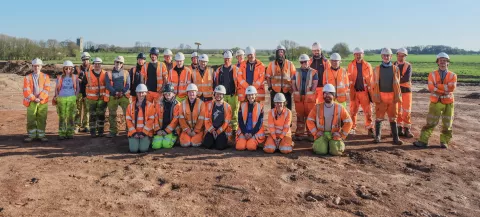Our people
Executive Team
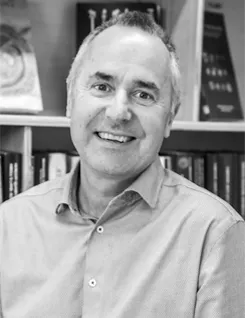
As CEO, Ken is responsible to the Board of Trustees of Oxford Archaeology for the leadership and effective operation of the business as a whole. He provides the strategic lead in the development of OA, both as a business in a competitive environment and as a charitable organisation involved in archaeological research and education for the public benefit.
After graduating in 1986 with a BSc (Hons) in Environmental Science, Ken worked as a geologist before transferring to archaeology in 1988. Since joining Oxford Archaeology in 1995, Ken has managed a wide range of archaeological projects and has particular experience in the management of complex mitigation schemes within large-scale infrastructure works, development of innovative and cost-effective approaches to archaeological mitigation, implementation of digital recording systems, databases and GIS analysis, and the provision of archaeological planning advice. He is also a qualified Health and Safety Advisor.
From 2016-2021, Ken was the Regional Manager in Oxford, responsible for the successful operation of that office.
He is a Member of the Chartered Institute for Archaeologists (MCIfA) and a Fellow of the Society of Antiquaries (FSA).
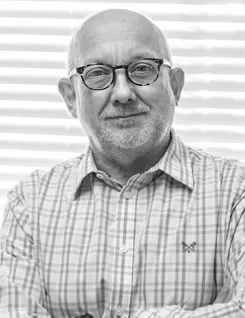
Andy joined Oxford Archaeology as Chief Financial Officer in March 2021. Andy is a very experienced financial professional and joined OA after spending over a decade in global roles in the international charity sector. Prior to this he worked in industry as well as in business and technology consultancy. In addition to financial management, Andy has extensive experience in business change, technology delivery, programme management and digital transformation.
At OA, Andy has overall responsibility for the leadership of finance, legal, HR, property and is also the interim Chief Information Officer. He is currently overseeing the major business system and IT infrastructure modernisation for the charity.
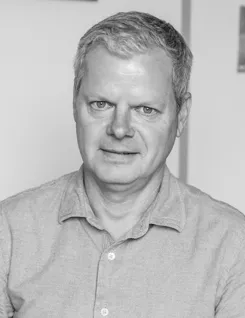
Dan has worked for Oxford Archaeology since 1992, starting as a volunteer and working his way up the ranks of the fieldwork team, with a focus on urban archaeology. He has extensive experience of project management and the pursuit of new contracts, gained from his years as a Senior Project Manager and then as head of the Oxford Archaeology Fieldwork and Contracts teams at our Oxford office. As COO, he is responsible for operations company-wide, ensuring quality and compliance across all Oxford Archaeology projects, including our ISO 9001, 14001 and 45001 certification. Dan leads on OA’s key infrastructure projects and partnerships, particularly the Oxford-Cotswold Archaeology JV.
Dan is responsible for Health, Safety and the Environment and is a Technical Member of the Institute of Safety and Health (IOSH). He also leads on training. He is a Director of the Federation of Archaeological Managers and Employers (FAME), a Member of the Chartered Institute for Archaeologists (MCIfA), and a Fellow of the Society of Antiquaries (FSA).
Board of Trustees
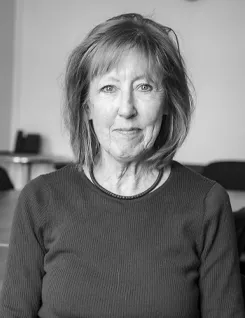
Jan’s professional career in archaeology started in fieldwork in the midlands and north of England. Moving into local government she managed both curatorial and fieldwork teams, most recently in Gloucestershire as County Archaeologist. For the last 10 years she has worked part time as a consultant on research projects, current sector issues, and organisational reviews. Her trustee and advisory roles have included Chair of the Association of Local Government Archaeologists, trustee of the Council for British Archaeology, Chair of the Institute for Archaeologists, and membership of the Historic England Advisory Committee. She is currently a Trustee of the Heritage Alliance, President of her county archaeology society, a Member of CIfA and a Fellow of the Society of Antiquaries of London.
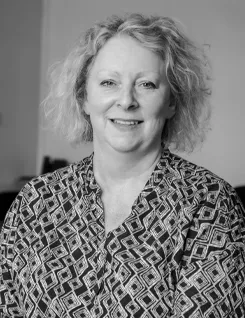
Alison has had a connection with Oxford Archaeology for over 30 years. She worked for Oxford Archaeology on the Eynsham Abbey site in the summer of 1990 before embarking on her doctoral research. In the late 1990s and 2000s she organised placements at Oxford Archaeology for students on the Professional Archaeology programme at Oxford University Department for Continuing Education (OUDCE).
She is currently Assistant Director at OUDCE, with responsibility for the Department’s undergraduate and postgraduate award-bearing programmes and accredited short courses. She teaches on a number of archaeology courses and supervises DPhil students.
Her fieldwork has been in central Italy and her research interests include Roman landscape archaeology, Roman urban life, and individuality and expression of identity in the Roman world.
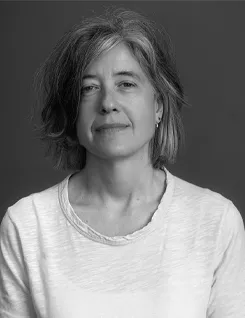
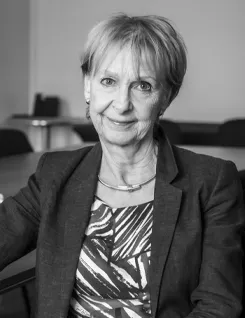
Gill has been a cultural heritage consultant for over 35 years working in both commercial and charity environments. She has a comprehensive knowledge of the heritage sector and has advised on the historic environment aspects of a number of major national infrastructure projects including Heathrow Terminal 5 and London Gateway Port, Essex. She is skilled at project planning and has been an expert advisor, mentor and monitor for the National Lottery Heritage Fund for over 20 years, supporting the development and delivery of major capital projects.
She has extensive experience of governance and business planning, having undertaken strategic planning reviews and option studies for a wide variety of organisations including Historic England and Cadw. She has served on the boards of a number of heritage and arts bodies, including as President of the Society of Antiquaries of London from 2014-18.
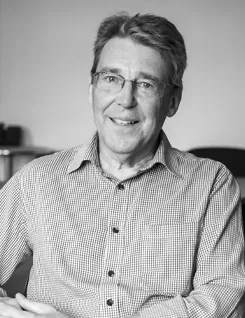
Paul joined the Trustees in 2020 having retired from a career in professional archaeology. A graduate from the University of Wales (University College Cardiff), after a stint on the digging circuit in the mid 1970s, Paul went into local government, first in North Yorkshire where he created the Sites & Monuments Record for England’s largest county and then in Berkshire, where he also developed innovative planning policies that helped form a basis for government planning policy in PPG 16. Since 1991 he has worked in archaeological planning consultancy and was a founding Director of CgMs Consulting. Since retiring Paul has undertaken a study of Roman agricultural landscapes in Midland and southern England and is currently preparing a D. Phil thesis at the University of Oxford on Romano-British rural settlement and farming.
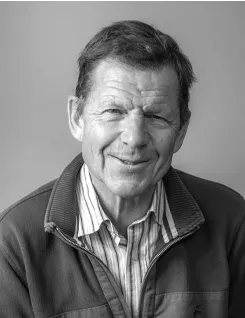
Richard is an Associate Fellow at the Saïd Business School, University of Oxford. His current projects include programmes for mid-career Indian professionals and the Archbishop Tutu Leadership Fellowship Programme.
Richard has worked at Oxford University for over 20 years both at the Business School and before that as the administrator of the Department of Materials where he helped set up the University’s Science Park at Begbroke. His early professional experience was as a UK civil servant and diplomat. He has also worked in the water industry as an economic consultant and specialist journalist. Richard is an active Friend (and former Chair of Friends) of the Pitt Rivers Museum. Richard brings to Oxford Archaeology broad experience as a Trustee as well as familiarity with practical management in tight financial circumstances.
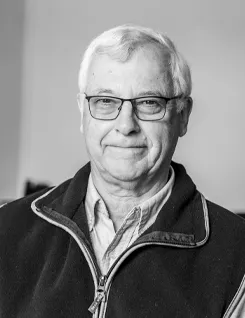
Simon has worked in the education during his professional career and has experience in Charitable Trusts. He has kept an active interest in Archaeology since he studied it in his undergraduate days. As well as being a Trustee of Oxford Archaeology he is a Trustee of The Vale of the White Horse and Ridgeway Archaeological & Historical Trust. He has also a long association with the Friends of the Ashmolean.
His academic interests extend to local history and he is a member of the Oxfordshire Architectural and Historical Society. He sees public benefit and educational outreach as essential aspects of Oxford Archaeology’s role in the community.
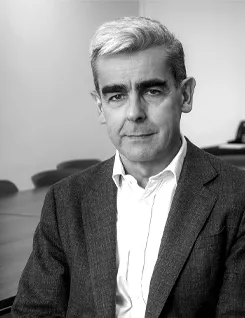
Steve has extensive finance and general management experience as a board member of public and private companies. After qualifying as an accountant with Coopers & Lybrand, he worked as a strategy consultant and then spent 10 years in the retail sector at Homebase and B&Q. Subsequently he was a main board director in businesses covering telecoms, commercial property, residential property services and financial services.
During his commercial career Steve has led delivery of new products and services, strategic acquisitions and disposals, investment projects, business turnarounds, cost saving programmes, debt and equity refinancings, and major systems changes.
Most recently Steve moved into the charity sector during the pandemic as bursar and trustee of Keble College, Oxford before retiring from executive roles in late 2024.
Steve has a degree in Natural Sciences from Cambridge University and is a Fellow of the Institute of Chartered Accountants in England and Wales.
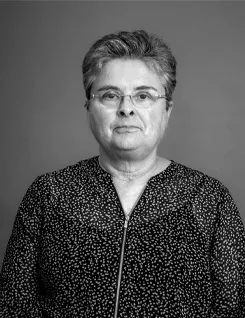
Sue specialises in working with charities and social enterprises and is passionate about the difference these organisations can make, both in local communities and in society. Her business expertise and skills come from a career in banking, working with charities and social enterprises at Triodos Bank UK and as CEO of a similar regulated finance organisation in New Zealand.
Returning to the UK she set up a new social investment programme for an endowed charitable foundation and worked for a place-based investor, developing a new social impact investment fund. Sue has a longstanding personal interest in history and archaeology and is based in Bristol working as a charity trustee, non-executive director and consultant.
Regional Managers
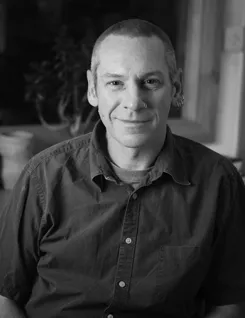
Fraser has been working in British archaeology since the late 1980s and graduated with a BA in Archaeology and Prehistory from Sheffield University in 1995. He joined Oxford Archaeology in 1998 and is Regional Manager for our Lancaster office. Fraser is also a qualified Health and Safety Advisor and helps co-ordinate and implement health and safety policy.
He has considerable project management experience, overseeing projects, in both rural and urban environments, from tender through to publication. He has routinely undertaken work for the building construction, mineral extraction, transport and energy sectors, and has particular experience of large-scale infrastructure projects, including road schemes, long-distance pipelines and airports. Fraser has a keen interest in British prehistory, especially the Mesolithic and Neolithic periods and has expertise in lithic sites and waterlogged environments. Digital recording techniques and geospatial analyses are also areas of interest. Notable recent projects include the Asselby to Pannal Natural Gas Pipeline, the Isle of Man Airport Runway End Safety Area project, Carlisle Northern Development Route, the A487 Caernarfon to Bontnewydd Bypass, and the A585 Windy Harbour to Skippool Bypass.
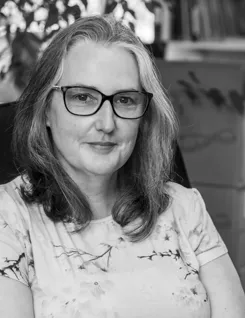
Katrina has worked for Oxford Archaeology since 2004 and has over 15 years' experience in professional archaeology in the UK and abroad. As well as being OA South's Regional Manager, she also manages a portfolio of projects. She has a particular interest in early Roman Britain and the archaeology of World War II.
Katrina holds a PG Dip in Forensic Archaeology from Bournemouth University and an MA in Classical Studies from Victoria University of Wellington, New Zealand. She is an Associate of the Chartered Institute for Archaeologists (ACIfA).
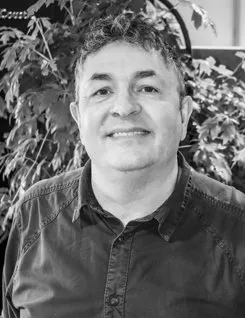
Stephen has over 30 years' experience in British, French and North American archaeology. He graduated from the University of Sheffield with a BA in Prehistory and Archaeology and has an MPhil in Archaeological Heritage and Museums from the University of Cambridge.
He is a leading proponent of Public Archaeology and has the responsibility for the education and outreach projects across Oxford Archaeology, managing the Oxford Archaeology Outreach service. Stephen has considerable experience in successfully obtaining grant aid for this type of heritage project.
He has extensive experience in project management, contracts and the heritage sector in general. Stephen is a Heritage Management and Roman specialist, and continues to pursue research projects in these areas, predominately but not solely in the Eastern Region. Stephen is a full Member of the Chartered Institute for Archaeologists (MCIfA), a member of the Council for British Archaeology (East) and sits on the council of the Cambridge Antiquarian Society.
Senior Management Team
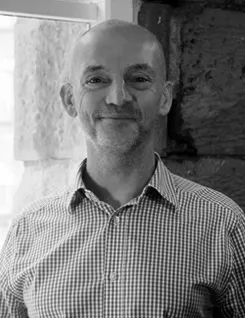
Alan has over 30 years' experience in professional archaeology in the UK and abroad and is a Member of the Chartered Institute for Archaeologists (MCIfA). He graduated in 1986 with a BA (Hons) in Ancient Mediterranean Studies from Bristol University, gained an MA (distinction) in 1988 at the Institute of Archaeology, UCL, and a PhD from Cambridge University in 1995.
Alan worked for Oxford Archaeology (OA) between 1995-7 and re-joined the company in 2001 working in our Lancaster office. He has managed a wide range of archaeological projects and has particular experience in the management of complex mitigation schemes within large-scale infrastructure works.
Since 2003, Alan has been the Operations Manager in Lancaster, is part of the Regional Management Team and also the Senior Management Team for OA. In his current role, he is responsible for fieldwork in the Lancaster office, overseeing quality and compliance across projects.
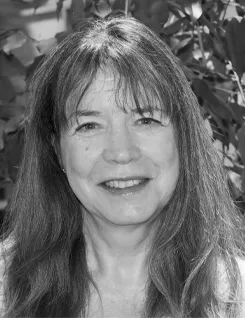
Liz oversees the post-excavation research and publications function at our Cambridge office. She has worked for Oxford Archaeology (and its predecessor) for twenty years. Her job is to manage all aspects of post-excavation work, including the finds, environmental and graphics teams. She also edits all of the academic and popular publications produced by the Cambridge team, ensuring that the highest academic standards are maintained and that projects are delivered on time to clients.
Having graduated from the University of Nottingham with a degree in Ancient History and Archaeology, she also has a PhD from the University of East Anglia. Liz has considerable experience in managing complex projects and specialises in urban Late Saxon and medieval archaeology, with particular interests in castle and cemetery studies.
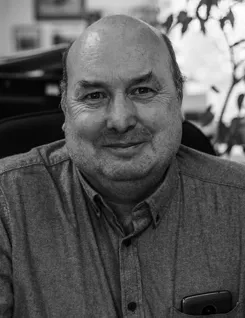
Gerry joined Oxford Archaeology as an Archaeologist in 2000, after graduating from the University of Reading. Gerry spent the next decade or so excavating sites as an Assistant Supervisor, Supervisor and Project Officer before gaining promotion to Senior Project Manager in early 2013. During his time as a manager, he ran a diverse range of projects, from Palaeolithic flint sites to industrial complexes, via work for the Oxford Colleges, but specialised in large-scale rural sites of prehistoric and Roman date. He has also undertaken the post-excavation analysis of sites and has worked extensively in the Contracts Department, providing high quality tenders for new work opportunities. Additionally, Gerry has responsibility for overseeing the fieldwork training programmes at the Oxford office, managing staff progression through the Graduate Trainee to Project Officer programmes. Gerry was promoted to Head of Fieldwork for the Oxford office in early 2025 and is passionate about continuing to deliver the high standards of work undertaken by our fieldwork teams. Gerry is a Member of the Chartered Institute for Archaeologists (MCIfA) and holds a Site Management Safety Training Scheme (SMSTS) qualification.
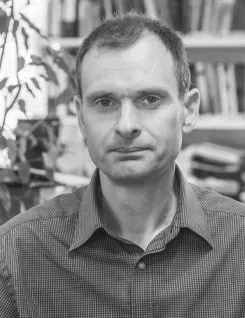
Leo has worked in the Oxford office of Oxford Archaeology as Head of Post-Excavation since 2016. In this role, he manages the Post-Excavation department and oversees the publication programme, as well as being part of the Senior Management team in Oxford. He previously held positions at Reading, Leicester and Bristol Universities, and has published widely on the later Bronze Age and Iron Age in northwest Europe. He has a PhD in Archaeology from the University of Cambridge, focusing on the Danish Iron Age. He is a Fellow of the Society of Antiquaries of London and a full Member of the Chartered Institute for Archaeologists.
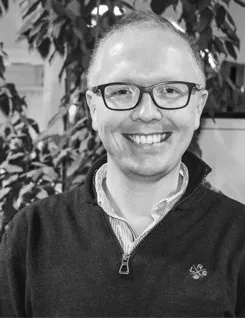
Pat has worked in commercial archaeology since 2008 and holds a BA in Archaeology and Ancient History from Reading University.
In his current role as Senior Project Manager, Pat co-ordinates the archaeological fieldwork and post-excavation programmes for large residential, commercial and NSIP projects across the East of England, including their contractual and financial management. Major projects he has recently managed include the 25ha Iron Age and Roman settlement complex at Wintringham, St Neots, and a 1,400 trench evaluation and 13ha of mitigation along the Hornsea Project 3 windfarm onshore cable route.
A background in heritage consultancy also allows Patrick to provide up to date and accurate pre-application advice to clients regarding a site’s heritage potential and mitigation requirements that may be required.
Pat has a particular interest in the Late Iron Age to Early Roman periods and Roman rural settlement patterns. He is a full Member of the Chartered Institute for Archaeologists (MCIfA)
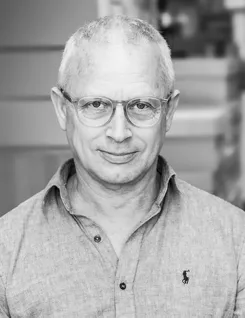
Richard has been a professional archaeologist since joining Oxford Archaeology in 1985. As a Fieldwork Senior Project Manager from 2000-2022, Richard specialised in urban and infra-structure projects and has been responsible for managing fieldwork and post-excavation projects including HS1 (Whitehorse Stone, Ebbsfleet International Station, the Southfleet Elephant excavation), the western section of Crossrail (Old Oak Common, Paddington, Tottenham Court Road and Bond St Stations), HS2 (HS2 Central and North Built Heritage for COPA JV), and multiple road-schemes (A120, A5, A421). Richard also has a background in castle/chateau excavation (Chateau de Mayenne, Chateau de Falaise, Windsor Castle, Tower of London) and has overseen work for the Royal Household at Buckingham Palace, St James’ Palace, Windsor Castle, Clarence House, Marlborough House and Kensington Palace since 2009.
As Head of Contracts and Business Development, Richard leads the tender team at the Oxford office of Oxford Archaeology as well as co-ordinating and overseeing tenders across Oxford Archaeology.
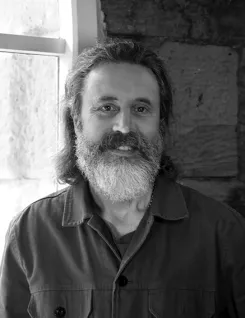
Richard holds a PhD in Archaeology and a BA (Hons) in Geography and Archaeology, both awarded by the University of Manchester. He has worked in archaeology for nearly 30 years, initially as a university-based researcher and latterly in commercial archaeology, and has been engaged in all aspects of the archaeological process, including desk-based research and assessment, excavation, post-excavation assessment and analysis, and publication. He has a specialist interest in post-excavation, and the prehistoric and early historic archaeology of northern Britain, with a particular emphasis on the Irish Sea area (south-west Scotland; north-west England, and north Wales), and has authored or co-authored numerous archaeological reports and publications relating to this area. As a Post-Excavation Project Manager, Richard oversees and is involved in many aspects of post-excavation in the Oxford Archaeology Lancaster Office, and is actively involved in the dissemination of the results from developer-funded excavations undertaken by Oxford Archaeology.
Meet the team
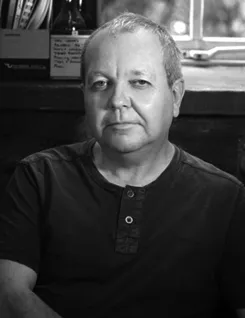
John Zant, BA (Hons), MCIfA
A graduate of the University of Newcastle-upon-Tyne and a Member of the Chartered Institute for Archaeologists, John has worked as a professional archaeologist for nearly 40 years, and has over 20 years’ service at our Lancaster office, currently as a Senior Project Manager in the post-excavation department. A highly experienced fieldwork director and researcher, John spent much of his early career working in historic urban environments, where he gained considerable expertise in the excavation of highly complex archaeology, including internationally significant waterlogged deposits.
John is vastly experienced in the excavation, recording and interpretation of multi-period archaeological remains, though his principal research interests lie in the archaeology of the Roman army and the development of urbanism in Britain. He has established a reputation as a leading expert on the Roman period in northern England, and has developed a strong track record of post-excavation analysis and publication, having authored a wide range of archaeological reports, including local and national journal articles and a number of substantial monographs.

Joshua White BA MSc ACIfA
Post-Excavation Project Officer
Josh joined Oxford Archaeology in 2022 after a decade of working in commercial archaeology across Norfolk and Suffolk, where he led excavations on a variety of projects and collated a diverse publication portfolio which spans the archaeology of the Neolithic to medieval periods.
His research interests primarily focus on Iron Age and Romano-British animal husbandry practices, but he also has a keen interest in the archaeology of medieval rural settlements.
As part of the post-excavation team at Oxford Archaeology’s Cambridge office, Josh is responsible for producing and editing client reports and he also carries out analysis of animal bone and mollusc assemblages recovered during excavations.
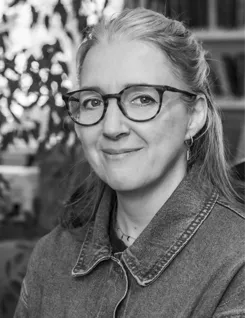
Kate graduated from University College London, institute of Archaeology, in 2000 with a BA (Hons) in Archaeology, and immediately began work on large projects in central London as a field Archaeologist. Kate started at Oxford Archaeology in the field in 2002 and joined the post-excavation department in 2005, first working on the Channel Tunnel Rail link project (HS1).
As a Project Officer, Kate has written and published many reports and articles and co-authored several monographs. She has also continued to work in the field on projects including the recovery and identification of World War I soldiers at Fromelles, Northern France, and the excavation of the medieval Greyfriars Friary during the development of the Westgate Centre in Oxford.
Kate is also a Roman pottery specialist and Oxford Archaeology’s fieldwork photographer.
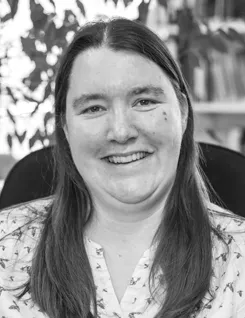
Kirsty graduated from the University of Reading 2004 with a BA (Hons) in Archaeology and then undertook an MA in Museums and Galleries at the University of Southampton in 2006-7. After working front of house for English Heritage for several years, she spent a year working for Canterbury Archaeological Trust as a field archaeologist. From 2008-2013 she worked for English Heritage at Dover Castle as an Assistant Curator.
Kirsty is now one of Oxford Archaeology’s experienced researchers and undertakes evaluation and excavation reports, conservation management plans, desk-based assessments and contributes to monographs. Kirsty has a particular interested in historical archaeology and combining documentary evidence with stratigraphic analysis and buildings research.
Since October 2020, Kirsty has been developing a specialism in Ceramic Building Material and fired clay.
Kirsty is an Associate Member of the Chartered Institute for Archaeologists (ACIfA).
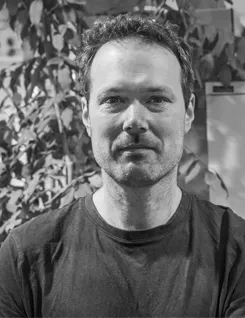
Lawrence graduated from the University of Bristol in 2004 and has since worked for various commercial archaeological companies as well as studying for an MA in European Prehistory (University of Sheffield) and a PhD on the Upper Palaeolithic and Mesolithic of East Anglia (University of Manchester/Historic England).
Lawrence is a specialist in the study of lithic assemblages and his main area of interest is the Mesolithic to Early Bronze Age of Eastern England. Aside from reporting on lithics, he contributes to the work of the post-excavation team at Oxford Archaeology's Cambridge office in the production of reports and publications.
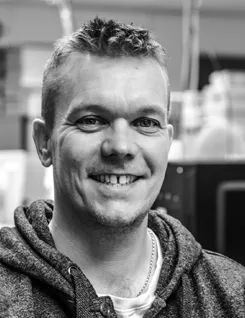
Martyn has been a Senior Project Manager at OA since 2018. He manages the post-excavation of archaeological projects, bringing to conclusion the results of our fieldwork for clients, often to publication. Martyn specialises in the study of late Iron Age and Roman Britain, especially in the fields of rural settlement and agriculture, and he is an experienced zooarchaeologist (animal bone specialist). Martyn currently sits on the Britannia Editorial Committee for The Roman Society.
After gaining a BA (Hons) in Archaeology from the University of Winchester in 2004, Martyn went on to complete an MA in Osteoarchaeology at the University of Southampton in 2006, and then a PhD at the University of Nottingham in 2010. Before joining Oxford Archaeology in 2017, Martyn worked for Historic England as a Research Assistant in Zooarchaeology and, between 2012 and 2016, was employed as a Post-Doctoral Research Fellow at the University of Reading.
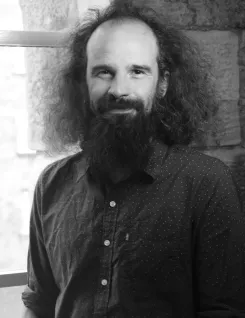
Nick has a BA (hons) in Archaeology from the University of Leicester, a MA in Osteoarchaeology from the University of Southampton and a PhD in Archaeology from the University of Manchester. After his PhD, Nick was a Lecturer in Archaeology at the University of Chester and Manchester.
Nick’s research has focused on the Prehistory of Britian and North West Europe; he has published a number of research articles examining the British Mesolithic, and in particular using detailed zooarchaeological analysis to think about the relationships between hunter-gatherer groups and the animals they lived alongside. Nick has also researched and published on the Neolithic and Early Bronze Age of Britian and Ireland, which included large-scale Bayesian statistical analysis of radiocarbon data. During his time at the University of Manchester, Nick has directed fieldwork projects at No Name Hill in Yorkshire, an Early Mesolithic wetland site with incredible assemblages of animal bone, worked wood, stone tools and antler projectile points, and at Dorstone Hill, an Early Neolithic monumental complex in Herefordshire.
As a Post-Excavation Project Officer, Nick uses his expertise in site interpretation, materials analysis and interpretations, radiocarbon modelling and publication to contribute to the analysis of projects, and the dissemination and communication of archaeology knowledge produced through developer funded excavations undertaken by Oxford Archaeology.

After graduating from the University of Sheffield in 1989 with a BA (Hons) in Archaeology and Prehistory, Rachel worked for several commercial units before joining Oxford Archaeology's Cambridge office (then CCC AFU) in 2004 as a Project Officer.
In 2014 Rachel took up a new role as Post-excavation Editor, focusing on editing and authoring reports, articles and monographs. Notable projects include a Roman small town in Wixoe, Suffolk, a Carmelite friary in Norwich, Anglo-Saxon and medieval settlement in Hinxton, Cambridgeshire and early post-medieval brick kilns in Cringleford, Norfolk. Rachel’s main areas of interest include medieval rural settlement, monastic sites, and urban archaeology.
Rachel oversees the work of the Graphics team at the Oxford Archaeology Cambridge office and is one of the editors for OA’s inhouse magazine. Rachel is a Member of the Chartered Institute for Archaeologists and continues to be involved with a local history and archaeology group in Tilty, Essex.

